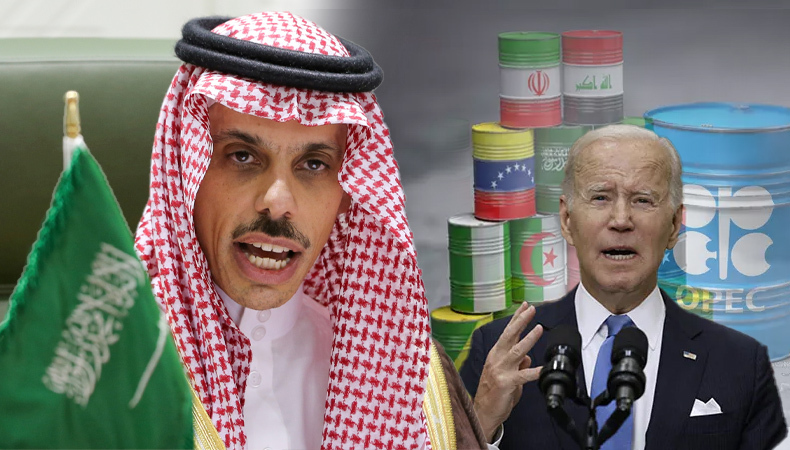OPEC+ decision to reduce oil production ‘purely economic’

The decision by OPEC+ to cut oil production, according to the foreign ministry of Saudi Arabia, was “purely economic.” The 23 nations that make up the OPEC+ coalition have decided to cut back on their daily oil production by 2 million barrels, citing “uncertainty” in the market.
The US had opposed the output reduction, claiming that it would benefit Russia and enable it to finance its conflict in Ukraine through higher oil prices. OPEC+ includes Russia as a member.
According to the foreign ministry of Saudi Arabia, the decision was made in response to claims that it was politically motivated against the United States and that the Kingdom was taking sides in international crises.
This, according to the statement, is “not supported by facts” and removes the OPEC+ decision from its “purely economic context.” It was also said that the decision had the unanimous support of all 23 OPEC+ members.
Read | Saudi Arabia begins teaching yoga in its universities
According to the ministry, “these results are based only on economic considerations that take into account preserving the balance between supply and demand in the oil markets, as well as to prevent volatility.”
According to the report, delaying the decision to cut output by one month, as the US government had proposed, “would have had significant economic effects.”
The Gulf nation, a longtime ally of the US despite their occasionally strained relations, was quick to point out other instances where it had taken a position that the White House would have approved of, such as Wednesday’s UN vote on Russia’s annexation of Ukrainian land.
According to the Saudi Foreign Ministry, the kingdom has upheld a “principled” stance regarding the conflict in Ukraine and had rejected “any encroachment on countries’ sovereignty over their territories.”
After receiving weeks of opposition from US authorities, OPEC+ made its decision. Following the announcement of the reduction in oil production earlier this week, US President Joe Biden warned that “there will be consequences” for Washington’s relations with Saudi Arabia.
The White House criticised the move as “shortsighted” shortly after it was made public. It said that Biden would keep overseeing the withdrawal of fuel from Washington’s Strategic Petroleum Reserve and work to reduce OPEC’s influence over world prices.
The timing, with the US midterm elections just weeks away and fuel costs being a perennial political flashpoint in the nation, has been criticised by some US watchers as being suspicious. Others contend that the US wanted to maintain a higher supply and lower prices for a variety of reasons, including increasing pressure on Russia in light of its invasion of Ukraine.
The reduction is the biggest since the alliance decided to decrease production by approximately 10 million barrels per day under COVID-19 lockdowns in April 2020, when the coronavirus pandemic was at its worst.




